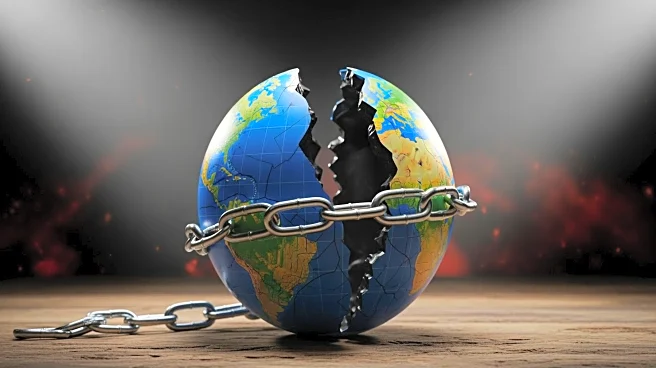What's Happening?
Iranian-backed Houthi rebels have detained approximately two dozen United Nations employees in Yemen's capital, Sanaa. This action follows a raid on a UN facility, marking a significant escalation in the
Houthis' crackdown on international organizations operating in areas under their control. The detained individuals include both Yemeni nationals and international staff from various UN agencies such as the World Food Programme and UNICEF. The UN is actively engaging with the Houthis to resolve the situation and regain control over its facilities. This incident is part of a broader pattern of detentions by the Houthis, who have previously accused UN staff of espionage, claims that the UN has consistently denied.
Why It's Important?
The detention of UN employees by Houthi rebels highlights the ongoing challenges faced by international organizations operating in conflict zones. This development could further strain humanitarian efforts in Yemen, a country already grappling with severe humanitarian crises. The UN's ability to deliver aid and support to vulnerable populations may be compromised, affecting thousands who rely on these services. Additionally, this incident underscores the complex geopolitical dynamics in the region, with Iran's influence over the Houthis potentially impacting broader international relations and peace efforts.
What's Next?
The UN is expected to continue negotiations with the Houthis to secure the release of the detained employees and restore operations in Sanaa. The international community may increase pressure on the Houthis to comply with international norms and respect the neutrality of humanitarian organizations. This situation could lead to heightened diplomatic efforts to address the underlying conflict in Yemen and seek a resolution that ensures the safety and effectiveness of international aid operations.
Beyond the Headlines
The detention of UN staff by the Houthis raises ethical concerns about the treatment of humanitarian workers in conflict zones. It also highlights the legal challenges faced by international organizations in ensuring the safety of their personnel while operating in hostile environments. This incident may prompt a reevaluation of security protocols and strategies for international agencies working in Yemen and similar regions.











